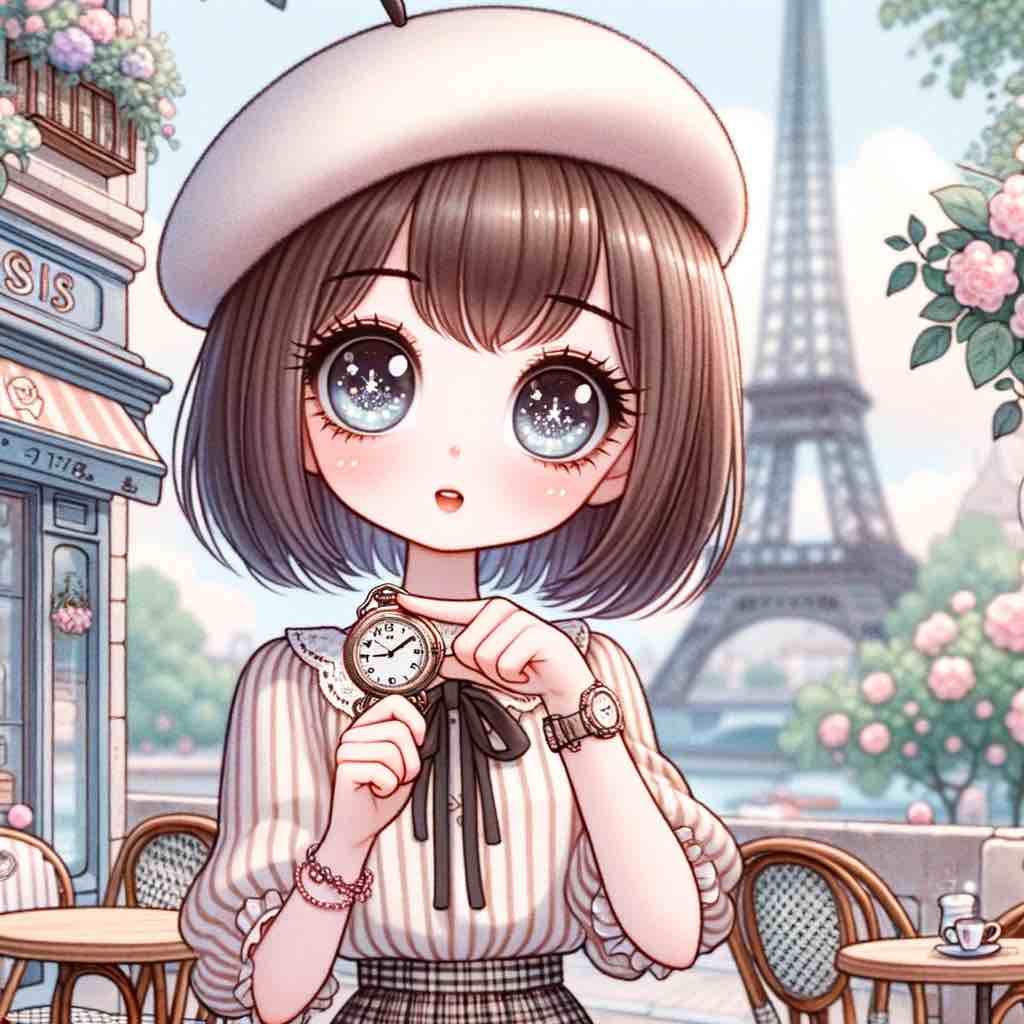Lesson: Understanding a French House Tour Dialogue
lesson 1 ⎥ lesson 2 ⎥ lesson 3 ⎥ lesson 4 ⎥ lesson 5 ⎥ lesson 6 ⎥ lesson 7
Introduction
In this lesson, we’ll explore a French dialogue where Nana, a language student in France, is shown her new living space and has a conversation with Julie, her host family member. We’ll break down the conversation, explain key phrases, and identify common interactions in this context.
DIALOGUE :
Listen to the dialogue and answer the questions.
🍀 QUESTIONS 🍀
Vocabulary List
- Rest – Reposer
- Shower – Douche
- Trip – Voyage
- Exhausting – Fatigant
- Unpack – Ranger ses affaires
- Bath towels – Serviettes de bain
- Closet – Armoire
- Souvenirs – Souvenirs
- Entrance – Entrée
- Kind – Gentil
GRAMMAR IN USE
1. Using “Avoir Besoin De”
The phrase “avoir besoin de” is a very common French expression used to indicate a need or requirement. It can be followed by either a noun or an infinitive verb, depending on what is needed.
Structure
- Avoir besoin de + noun – “to need [something]”
- Example: J’ai besoin de café. I need coffee.
- Avoir besoin de + infinitive verb – “to need to [do something]”
- Example: J’ai besoin de dormir. I need to sleep.
Examples from Dialogue
- “Tu as besoin de te reposer?” – Here, “avoir besoin de” is followed by an infinitive verb, “te reposer,” showing a personal need (to rest).
2. Using “Avoir Envie De” in French
Introduction
In French, the expression “avoir envie de” is used to indicate desire or wanting something. It can be followed by a noun or an infinitive verb to express the object of desire or the desired action. This lesson will explain how to use “avoir envie de” and provide examples to clarify its usage.
Structure of “Avoir Envie De”
- Avoir envie de + noun – To express wanting a specific thing or object.
- Example: “J’ai envie de chocolat.” (I feel like having chocolate.)
- Avoir envie de + infinitive verb – To indicate a desire to perform an action.
- Example: “J’ai envie de dormir.” (I feel like sleeping.)
Example from the Dialogue
In the recent dialogue, the expression “avoir envie de” is used to express Nana’s need for a specific action:
- Nana: “J’ai surtout envie d’une douche.” (I especially want a shower.) Here, “avoir envie de” is followed by a noun (“douche”), indicating the object of desire.
Additional Examples
To further understand how to use “avoir envie de,” let’s look at more examples:
With a Noun
- J’ai envie de glace. I feel like having ice cream.
- Elle a envie de vacances. She feels like going on vacation.
- Nous avons envie de repos. We feel like resting.
- Ils ont envie de pizza. They feel like having pizza.
With an Infinitive Verb
- J’ai envie de manger. I feel like eating.
- Tu as envie de regarder un film? Do you feel like watching a movie?
- Elle a envie de sortir. She feels like going out.
- Nous avons envie de faire une promenade. We feel like taking a walk.
Conclusion
The expression “avoir envie de” is a useful way to convey desire or preference in French. By understanding its structure and practicing with examples, you can improve your ability to express what you want or feel like doing. This expression is frequently used in everyday conversations, making it essential for French learners.
Explanation of Dialogue
Here is a breakdown of key phrases and the overall context of the dialogue.
Asking About Rest
- Julie: “Tu as besoin de te reposer?” (Do you need to rest?)
- Nana: “Non, ça va. J’ai surtout envie d’une douche.” (No, it’s okay. I just want a shower.) Julie checks if Nana needs to rest, considering the long journey. Nana prefers a shower, indicating she’s ready to settle in.
About the Journey
- Julie: “Le voyage était fatigant.” (The journey was tiring.) Julie acknowledges that travel can be exhausting, which is why she checks if Nana has unpacked.
Locating Towels
- Julie: “Tu as rangé tes affaires?” (Did you unpack?)
- Nana: “Oui, mais je n’ai pas trouvé les serviettes de bain.” (Yes, but I haven’t found the bath towels.) Nana shares that she’s unpacked but couldn’t find the bath towels, indicating that she’s still getting familiar with her new surroundings.
Finding the Towels
- Julie: “Elles n’étaient pas dans l’armoire?” (Weren’t they in the wardrobe?)
- Nana: “Dans l’armoire de ma chambre? Je n’ai pas encore regardé. Oui, c’est bon! Elles y sont.” (In the wardrobe in my room? I haven’t looked yet. Yes, they’re there!) Julie guides Nana to the wardrobe, where she finds the towels. This shows Julie’s helpfulness in navigating the new space.
Offering Gifts
- Julie: “Tiens, il y avait ces sacs à l’entrée. C’est bien à toi?” (Here, there were these bags at the entrance. Are they yours?)
- Nana: “Oui, ce sont quelques souvenirs du Japon. Tenez, c’est pour vous.” (Yes, they are some souvenirs from Japan. Here, they’re for you.) Julie notices some bags at the entrance and asks if they’re Nana’s. Nana gives them as gifts, showing her thoughtfulness and appreciation.
Gratitude and Appreciation
- Julie: “Pour moi? Merci, c’est gentil.” (For me? Thank you, that’s kind.) Julie is grateful for the gift, reflecting the polite and appreciative interaction common in French culture.
lesson 1 ⎥ lesson 2 ⎥ lesson 3 ⎥ lesson 4 ⎥ lesson 5 ⎥ lesson 6 ⎥ lesson 7


